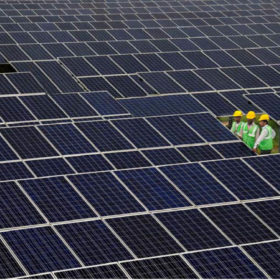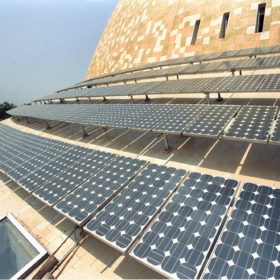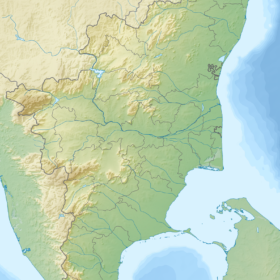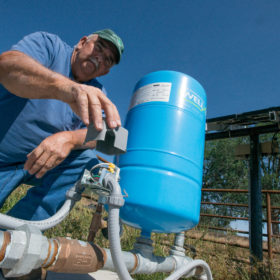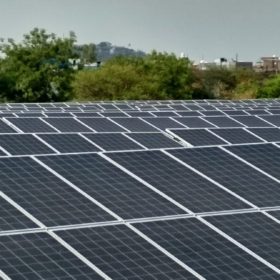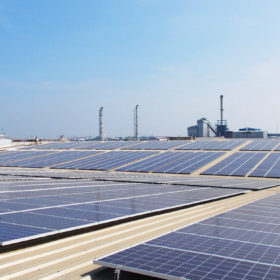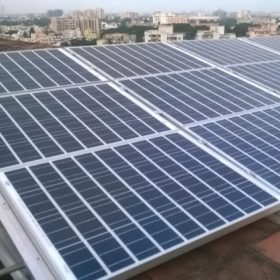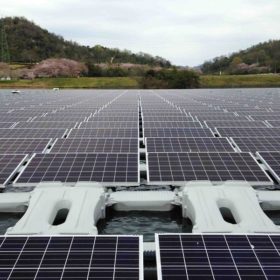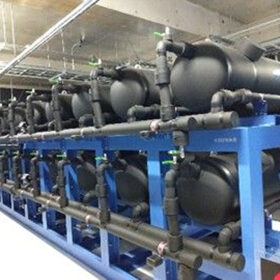Avaada Energy to set up 2 GW of open access solar plants in 5 states
Currently, the independent power producer has over 500 MW of open access solar portfolio, with leading IT and manufacturing giants among its client base.
Minister says India has surpassed 1.7 GW of non-commercial rooftop solar capacity
RK Singh told the upper house of the Indian parliament yesterday the nation had added 780 MW of new generation capacity in the last two years. The share of renewables in India’s power mix is rising too, but not fast enough to ensure electricity supply for all.
NLC India commissions 63 MW solar capacity in Tamil Nadu
The state-owned power generator has commissioned 63 MW capacity out of the 100 MW solar PV power plant in Tirunelveli district, with Tamil Nadu Generation and Distribution Corporation (TANGEDCO) as the beneficiary.
Greenpeace report lauds India’s ‘solarization of agriculture’
Analysis of the solar pumping programs being rolled out across five states backs claim switching irrigation systems to PV could give the nation a huge leg-up towards its renewable energy ambition.
Himachal Pradesh announces generic solar PV tariff
The Himachal Pradesh Electricity Regulatory Commission (HPERC) has followed the lead of the authorities in Tamil Nadu, Bihar and Maharashtra in setting generic levelised tariffs for PV projects.
Oriano completes 13.75 MW projects for Cleantech Solar across multiple states
Currently, the Mumbai-based solar EPC firm is executing 134.5 MWp project capacity to be commissioned by September 2019. It expects to surpass cumulative installation of 350 MWp by the end of FY 2019-20.
Tamil Nadu discom halts renewable energy auctions
Tangedco’s reputation for late payments scared off developers in its latest two, failed tender exercises. The solution? Get government body SECI to hold the auctions, because everyone knows it pays on time!
Belectric commissions 26 MW rooftop solar projects for Cleantech Solar
The German EPC contractor is also building a 250 MW AC ground-mounted solar farm in Karnataka. Overall, with an already installed capacity of more than 370 MWp and other projects under implementation, it expects to cross 1 GW of installed capacity in India by the year end.
Exide acquires 26-30% equity in 3 captive projects by Cleantech Solar
Lead-acid battery manufacturer Exide Industries has entered into 26-30% equity shareholding agreement with Singapore-based Cleantech Solar Energy for three captive solar power plants to be set up for its manufacturing units in Tamil Nadu, Haryana and Maharashtra.
Singapore’s AM Holdings setting up 24 MW floating solar plant at Indian petrochemical arm
The floating solar power plant—to be developed by AM International’ Greenam Energy—will be located in Tuticorin plant of Southern Petrochemical Industries Corporation (SPIC). The power generated will be used to meet SPIC’s electricity requirements and the excess will be sold to the state power utilities.
